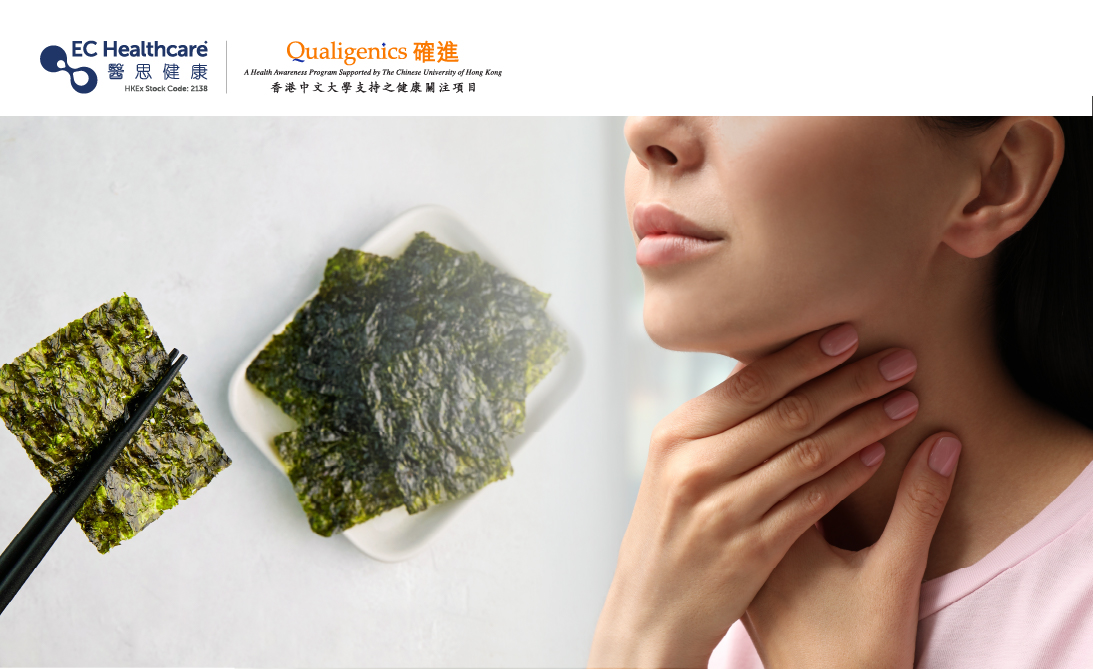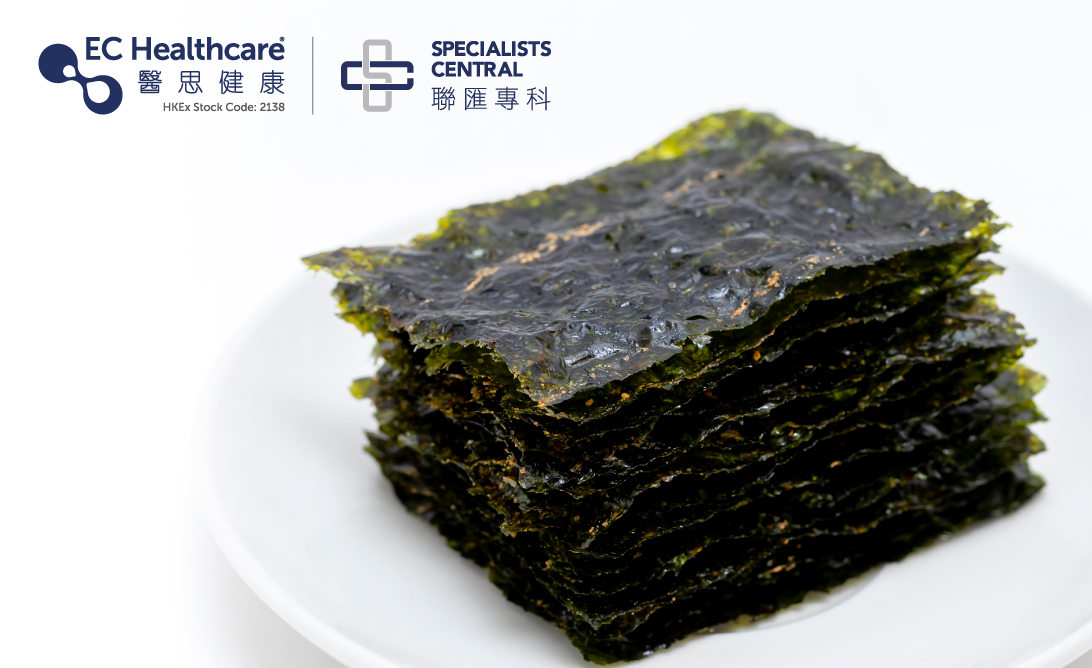Is Too Much Seaweed Linked to Thyroid Issues?


The thyroid is a butterfly-shaped gland located at the front of the neck. It produces essential hormones such as triiodothyronine (T3) and thyroxine (T4), which are important for the body's metabolism and growth. However, certain thyroid problems, such as hyperthyroidism, hypothyroidism, or nodules, can arise due to various factors, including excessive consumption of seaweed!
Can eating too much seaweed mess with my thyroid gland?
Yes! Seaweed is rich in iodine, which is an important component of thyroid hormone synthesis. But if you consume too much iodine, this can overstimulate the thyroid and trigger excessive hormone production, leading to hyperthyroidism. This can cause symptoms like rapid heartbeat, weight loss, anxiety, and insomnia, among others. If hyperthyroidism persists, it can lead to goitre and thyroid nodules.
Does this mean we should not eat seaweed?
As our body cannot make iodine by itself, we have to get it from the diet. You should maintain sufficient iodine intake to keep your thyroid healthy, otherwise, you could end up with hypothyroidism! It can cause fatigue, weight gain, depression, dry skin and other problems. It can even mess with your growth and lead to goitre, nodules and tumours.
So, if you have no thyroid issues in the first place, you should consume a moderate amount of seaweed to replenish iodine to help balance thyroid hormone production. Apart from seaweed, there are also other foods that can supply iodine to your body.
Here are some examples of foods that contain varying levels of iodine. You should control your iodine intake based on your individual health needs and condition.
Foods rich in iodine:
Sea vegetables like seaweed and kelp; seafood such as beltfish, lobster, mussels, oysters, sea fish, jellyfish, and sea cucumber; and vegetables that grow in soil with high iodine levels.
Foods lower in iodine:
Nuts such as walnuts and pine nuts; eggs from chicken, duck, and goose; milk from cows and goats; dairy products such as powdered milk, yogurt, and cheese; meat like beef, lamb, chicken, and freshwater fish; vegetables such as bok choy, green pepper, spinach, and celery; and iodized salt and iodine-fortified foods.
Foods low in iodine:
Cereals such as rice, corn, and flour; legumes such as red beans and soybeans; fruits such as persimmons, grapes, oranges, pineapples, and bananas; and root vegetables such as yams, potatoes, and sweet potatoes.
Thyroid problems generally do not result from a single cause. Along with diet, genetics, environment, and other lifestyle factors can all affect thyroid health. The impact of seaweed on the thyroid also varies from person to person. So, if you spot anything abnormal with your thyroid, see a doctor and get checked out immediately. Once you identify the causes, consult with your doctor about whether it's safe for you to consume seaweed.
Related Brands








